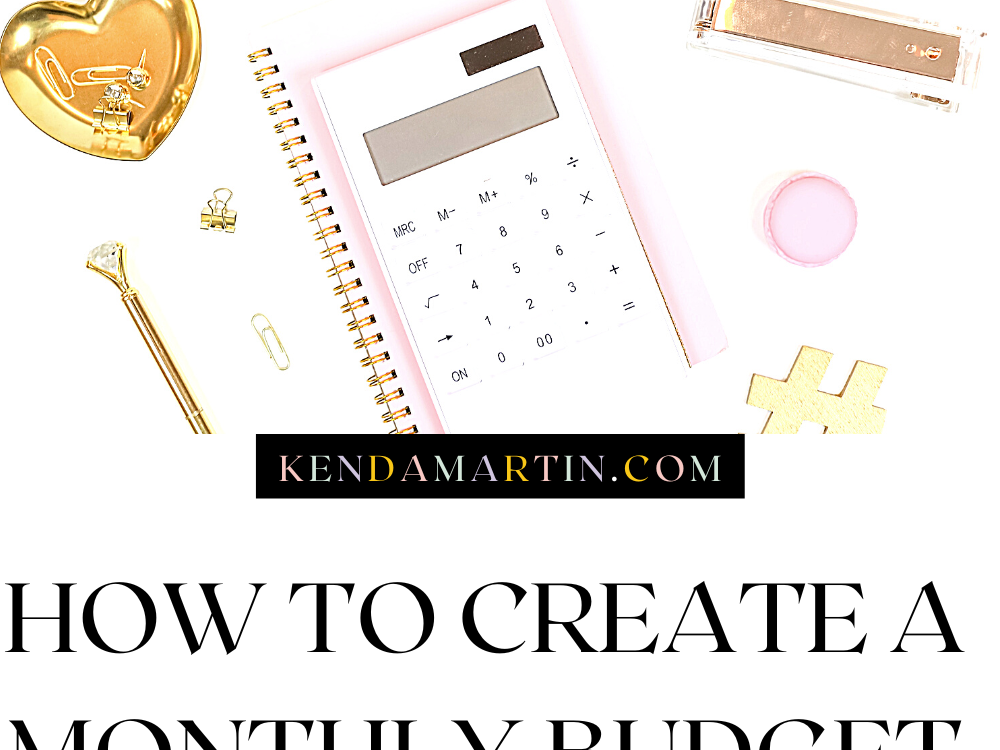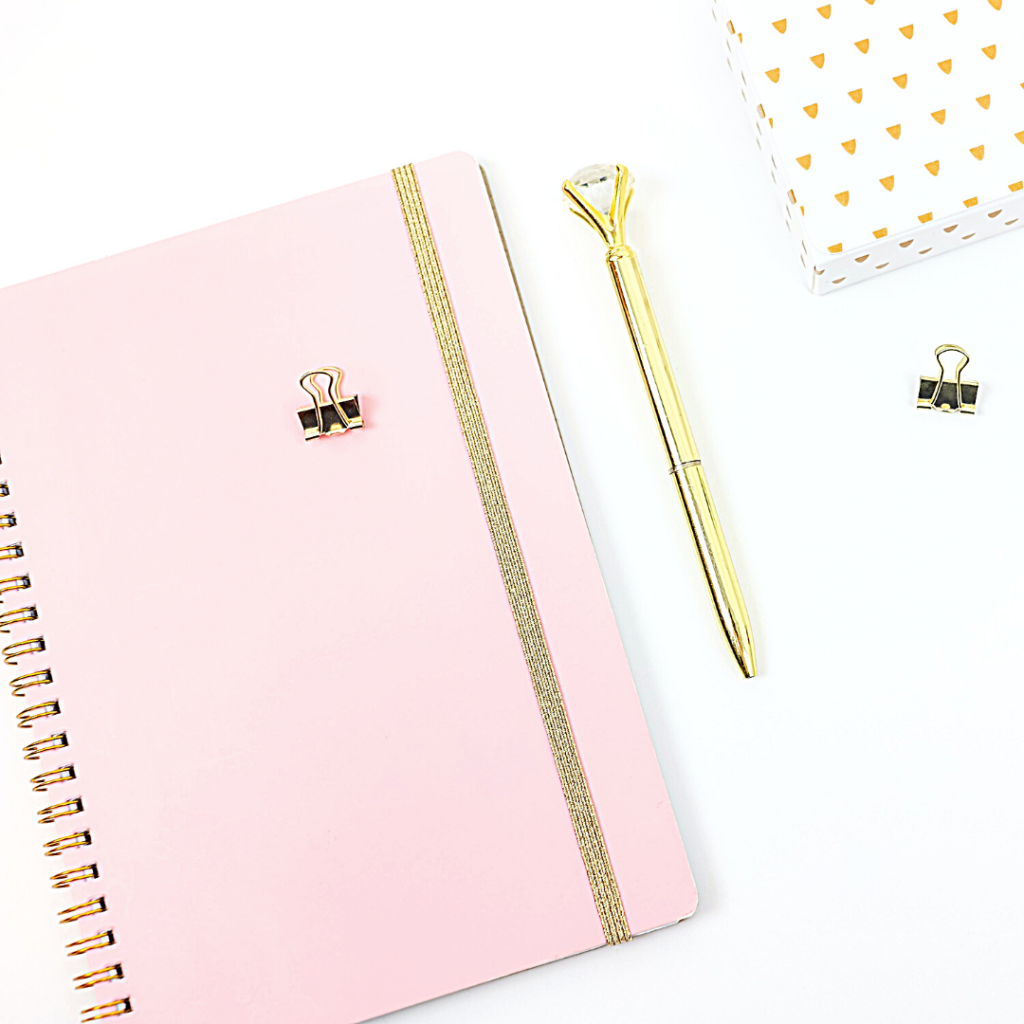


Getting your finances in order is one of the best things you can do to better your relationship with money. Money management is a skill and when you practice budgeting your money it becomes easier for you to reach your financial goals. Creating a monthly budget will help you learn how to manage, save, and spend your money smartly. Here are 5 ways to create a monthly budget and take control of your finances!
5 WAYS TO CREATE A MONTHLY BUDGET
1. KNOW YOUR INCOME

The first step toward creating a monthly budget is knowing how much money you are bringing in each month. This means any income that you bring home after taxes and any other deductions. Once you know how much money you will have rolling in each month, it’ll be a lot easier to create a budget and plan your bills, and expenses for each month.
2. REVIEW YOUR BILLS AND EXPENSES
Now it’s time to gather all of your bills and monthly expenses!
Create a list of all your bills and monthly expenses. Next, you’ll want to calculate those bills and expenses by adding the total amount for your monthly expenses and bills. After the total amount of your bills and expenses are combined you’ll then have a clear understanding of how much you will need to cover your utilities, phone bills, rent, etc.
I recommend having a space where you can plan your finances, with ease. Whether it’s a notebook or a financial planner. I currently use the Mini Budgeting Planner made by The Happy Planner and it takes the stress out of budgeting and managing finances!
3. REVIEW YOUR BANK STATEMENTS AND CUT BACK ON SPENDING

Where is your money really going?
Take a look at your bank statements and decide what are areas where you can cut back on. If you see that you’re spending a ridiculous amount of money on services you no longer use or unnecessary items such as coffee, manicures, and other things that you can do yourself, then this is an easy way you can save money and lower your monthly spending.
RELATED: 10 ITEMS I STOPPED BUYING TO SAVE MONEY
4. CREATE A SAVINGS PLAN
Before you start spending the money that you have leftover, you may want to consider saving some. Although your bills and expenses are accounted for it’s always smart to save when you can and make it a habit. If you haven’t created a savings or an emergency fund then now would make a great time to start saving some extra cash. A smart saving tip is saving at least 20% of your income. In the case of an emergency or an unexpected expense, you’ll have the funds to cover yourself in your time of need.
5. PLAN FOR BIG EXPENSES
While creating a budget can seem overwhelming, it allows you to spend freely knowing what each dollar is going to be spent. Planning for big expenses should not interfere with your savings, emergency funds, bills, and expenses. For example, if you’re wanting to treat yourself to something nice, go on a vacation, or purchase an item that is slightly over your budget, make a plan to save and purchase the item once you are comfortable making the purchase and it doesn’t affect your income negatively.
You May Also Like:
- 4 TIPS FOR ENJOYING YOUR SUMMER
- THE ULTIMATE SUMMER BUCKET LIST
- 6 DAILY HABITS TO FEEL GROUNDED
- SMILE MORE WORRY LESS — HERE’S HOW TO DO IT
- HOW TO READ YOUR BIBLE





